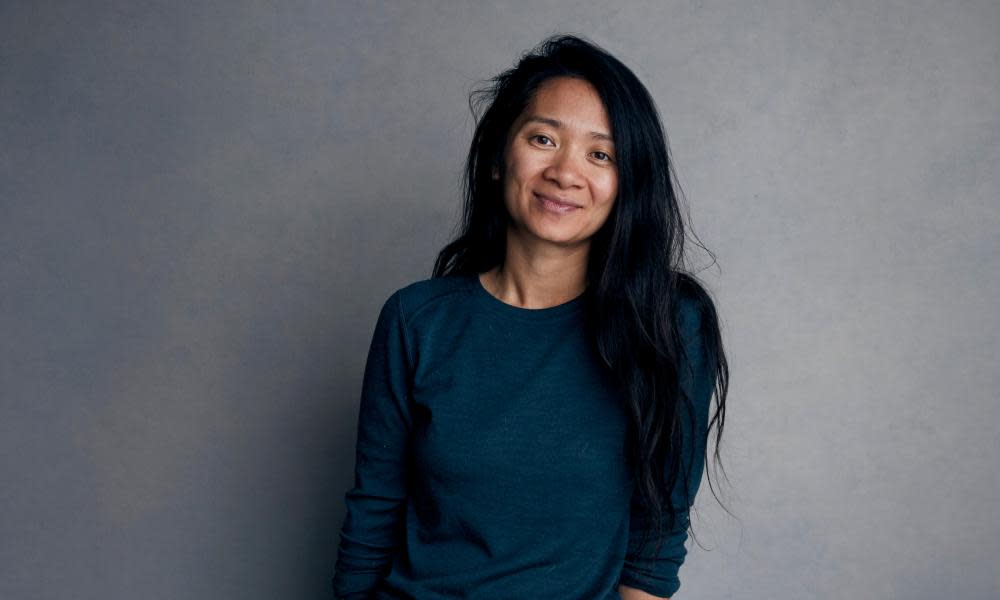Nomadland references censored in China over critical comments by Chloé Zhao from 2013

The Chinese release of Golden Globe-winning film Nomadland could be in doubt after accusations its Beijing-born director criticised China in a 2013 interview.
Promotional material and references to the film by Chloé Zhao, who is based in the US, were wiped from the internet in China, days after Zhao was widely praised by Chinese media for becoming the first Asian woman in history to win a Golden Globes award for best director. State media headlines lauded her as “the pride of China”, and advertised the film’s scheduled release on 23 April.
However, on Friday references began to disappear from state and social media, and show times for the film were removed from major ticketing websites. China’s National Arthouse Alliance of Cinemas, which was approved to show Nomadland, has not responded to press queries about the change.
Related: Golden Globes 2021: a night of fine choices capped by Chloé Zhao making history | Peter Bradshaw
On Weibo, a hashtag related to the film has registered more than 87m views and 40,000 reposts, but the content of it has disappeared, replaced with a message that it had been removed “according to relevant laws, regulations and political policies”.
There is no confirmation that the film’s release will be cancelled, and Variety reported the cinema group is hoping to go ahead with a more muted, unpublicised release.
The censorship efforts appear linked to comments made by Zhao in 2013 interview with Filmmaker magazine, in which she described being a teenager in China as a “a place where there are lies everywhere”. The comments – given in the context of moving to London and “relearning” her history – were removed from Filmmaker’s online version in February, the New York Times reported, but could still be found on online archives.
Last week they were resurfaced by Chinese social media users, some of whom accused her of “smearing China”, and called for a boycott of the film.
The criticism was fuelled further by a misquote in a recent Australian media interview that focused heavily on the themes of home and identity, where Zhao’s comment that the US “is not my country, ultimately” was originally reported as “now my country”.
Not all references to the film have disappeared. An English version of the film poster remains on ticketing website Douban, albeit without a release time. A Xinhua article with an April-dated movie poster and glowing quotes from Zhao’s family is still online. And some discussion is continuing, including by state media figures, about whether nationalistic fervour is leading to oversensitivity about any perceived criticism.
Hu Xijin, the editor of nationalistic state media outlet the Global Times, wrote on Weibo that while he felt people’s anger at her comments was justified, withdrawing the film from release would not be.
“To keep China open means to be able to accommodate some conflicts and inconsistencies,” Hu said. “In 2013, Zhao Ting said something that could be regarded as humiliating to China, but she is not the kind of extremist who turn such values into political positions and highlights them overseas.”
Some commenters noted irony in the domestic Chinese backlash to a movie about problems in the US, given the present bilateral tensions and anti-US sentiment.
Another commenter feared the outcry was on the path towards cultural revolution. “Respect for differences is the embodiment of civilisation,” they said. “When everything is politicised, is made into narrow-minded paranoia, it is the embodiment of a lack of self-confidence.”

 Yahoo Movies
Yahoo Movies 
